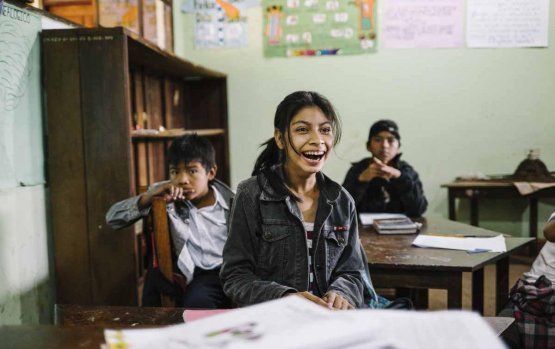Disability Inclusion Advisor Zina Olshanska writes of her experience at the Family Planning Conference in Rwanda, and the story of a particular woman.
My last trip to Rwanda got imprinted in my memory. It was the kind of journey which you plan in advance but which turns out differently, taking you in another direction which you did not expect to go but hoped for.
I was initially planning to attend the International Family Planning Conference organised in Kigali from November 11 to 15. Of course, I planned to visit the conference anyway but just as a visitor. Yet However, I was asked later to give a presentation in the session on ‘Achieving Sexual and Reproductive Health and Rights for Young People with Disabilities’, so I grasped the chance. It was a wonderful possibility to present the learnings findings from “Every Life Matters”, a programme by Light for the World together with partners in Rwanda, Ethiopia and Mozambique. I happen to be the regional manager of this programme which aims to make healthcare – especially eye health care – accessible for everyone.
Unexpected interest for inclusion
But what was unexpected about this? You would ask me… And I will answer: It is the interest in inclusion. I did not expect to see and meet so many people who were eager to learn about inclusive practices in the sexual and reproductive health sector.
The night before the presentation I thought about which story I should share to make the others grasp inclusion not just as a buzz word but as a true experience. And I decided to share the story of an unknown person: someone without a name and or trace in the medical register. It is a story of a deaf illiterate woman who came one day to the health center in Arba Minch town in Ethiopia asking for help. She was severely abused, in pain, tired and in need of medical treatment. When the medical staff was were telling me this story, I was imagining her running from one door to another trying to ask for help and explain in her language what she felt, what happened to her, what she should know now do. Nobody could understand, nobody could communicate with her. The only thing what the medical personnel managed to do is to offer her a HIV and pregnancy test. She appeared to be HIV positive and pregnant, probably raped. What do you think happened next? Nothing…She left without being treated and she never returned again.
The meaning of leaving no one behind
I told this story to the audience at the conference. The people were silent for a while, and I understood: they feel felt what I felt when this story was told to me. They grasped the meaning of inclusion. The way it needs to be. Each medical provider should be able to communicate with deaf and/or illiterate people; each HIV prevention programme should reach the most marginalised groups who can’t read about HIV from their families; each family planning intervention should analyse the contraceptive needs of persons people with disabilities and address their parenthood wishes; each sexual education curriculum should be adapted to the realities of girls and boys with disabilities; each measure against gender-based violence should address the experiences of women with disabilities.
I am happy that my journey gave me the possibility to share this unknown woman’s story: Is she alive? Has she been offered help elsewhere? Has she delivered her baby safely? I don’t know. But I feel fulfilled that I managed to communicate her story to others, and to perhaps help them see what inclusion really means.

